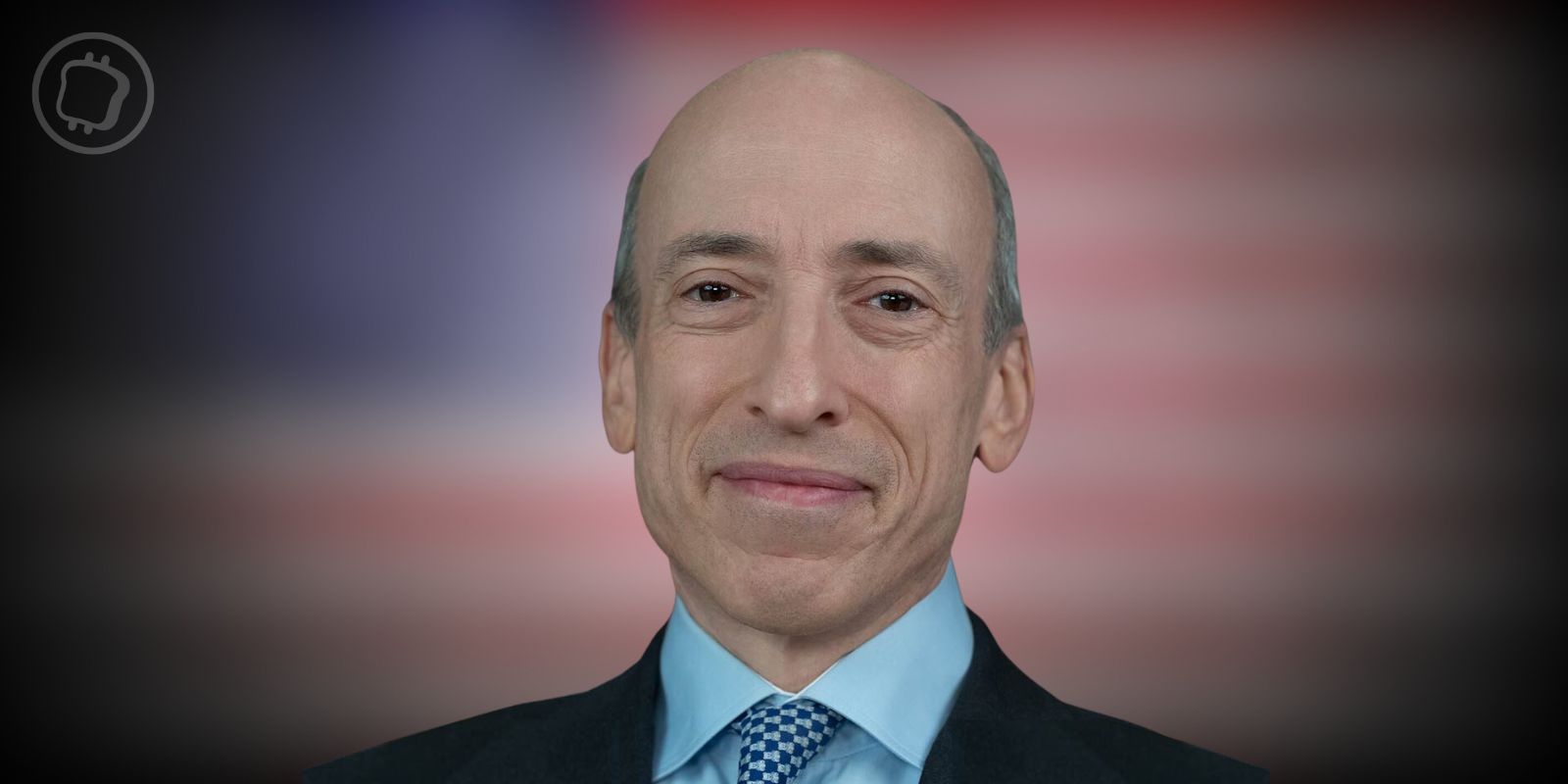Gary Gensler, the head of the Securities and Exchange Commission (SEC), is a bogeyman in the crypto community. Crusading against companies and entities in the sector in recent months, he has been very strongly criticized. But a video recently shared on Twitter shows that Gary Gensler hasn’t always been so hostile to the industry…
A video that says a lot about Gary Gensler’s past positioning
Before coming to the head of the SEC, Gary Gensler was a professor at the Massachusetts Institute of Technology (MIT). And he gave lessons, particularly on the subject of blockchain and cryptocurrencies. It’s an excerpt from his 2018 lectures that ended up on Twitter, and we see an SEC boss much more open to cryptocurrencies than it is now.
Gary Gensler believed at the time that the sector was not really a regulatory issue. He asserted thus:
“Three-quarters of the market isn’t securities, it’s just commodities, cash, crypto. […] This is not particularly an issue from a legal point of view.»
The statement is surprising, because Gary Gensler has made this notion his recent battle horse. He thus asserted that the majority of cryptocurrencies were “securities”including Ether (ETH), which is based on staking mechanisms.
👉 Going Deeper – Gary Gensler Held Accountable for Aggressive Cryptocurrency Regulation
Buy crypto on eToro in minutes
The crypto community reacts to the video
The video of course caused a reaction from a particularly scalded crypto community regarding the SEC. As a professor at MIT, Gary Gensler apparently had a much more measured positioning on cryptocurrencies. Coinbase CEO Brian Armstrong, who is currently in a battle with the SEC, only had a brief reaction to the video:
Wow https://t.co/gQZ7pRWacM
— Brian Armstrong 🛡️ (@brian_armstrong) April 26, 2023
However, some commentators have pointed out that the crypto market has changed a lot since 2018, and that the explosion of prices, and of certain sectors such as decentralized finance (DeFi), must have contributed to changing the opinion of the director of the SEC. But is it legit? After all, assessing an asset’s status as a security relies on a test, the Howey test. And the latter does not change, regardless of the amounts involved.
In 2018, Gary Gensler claimed that “in the three jurisdictions [dont les États-Unis] that follow the Howey test, […] three-quarters of the markets are not securities“. The nature of these assets has not changed, only their size… And the position held by Gary Gensler, now head of the SEC. One can therefore wonder why he made such a sharp turn towards strong regulation of the sector.
👉 Listen to this article and all other crypto news on Spotify
Our service dedicated to cryptocurrency investors. Get real-time analytics and optimize your crypto portfolio.

Source : @ZK_shark through Twitter
Newsletter 🍞
Receive a summary of crypto news every Monday by email 👌
What you need to know about affiliate links. This page presents assets, products or services relating to investments. Some links in this article are affiliated. This means that if you buy a product or register on a site from this article, our partner pays us a commission. This allows us to continue to offer you original and useful content. There is no impact on you and you can even get a bonus by using our links.
Investments in cryptocurrencies are risky. Cryptoast is not responsible for the quality of the products or services presented on this page and could not be held responsible, directly or indirectly, for any damage or loss caused following the use of a good or service highlighted in this article. Investments related to crypto-assets are risky by nature, readers should do their own research before taking any action and only invest within the limits of their financial capabilities. This article does not constitute investment advice.
AMF recommendations. There is no guaranteed high return, a product with high return potential involves high risk. This risk-taking must be in line with your project, your investment horizon and your ability to lose part of this savings. Do not invest if you are not ready to lose all or part of your capital.
To go further, read our Financial Situation, Media Transparency and Legal Notices pages.










